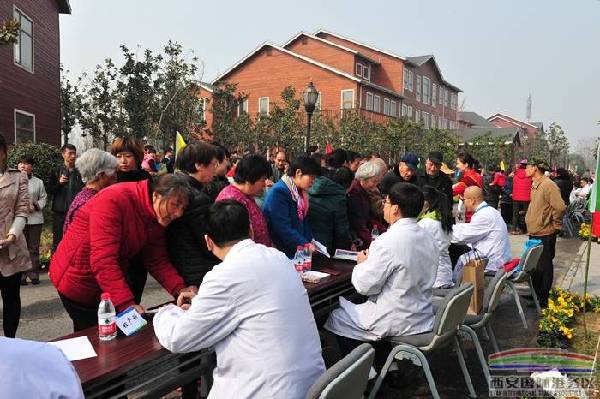 |
|
Residents consult medical questions at a free clinic session at the International Lugang Hospital in Xi’an city, capital city of Northwest China's Shaanxi province, on March 16. [Photo/itl.gov.cn] |
"An eye for eye, and a tooth for a tooth." This is what seems to be happening between doctors and patients. On March 31, 51-year-old doctor Zhou Xiaohui in Chengdu of Sichuan ended his life, after he and his colleagues were harassed by the family of a seriously ailing patient. On March 29, a "grass roots"doctor surnamed Li in Bozhou of Anhui province strangled a former patient to death after he had been repeatedly humiliated by her. Time is needed to uncover the whole truth behind the two extreme cases. However, the unrelated cases are indeed the tip of the iceberg of the growing disbutes between doctors and patients across China.
According to health authorities, hospitals and clinics in China provided 7.3 billion outpatient services in 2013, and there were about 70,000 disputes between medical workers and patients. The massive public comments following the reports on the two cases show how divided people are on these disputes. Some show sympathy to the doctors, who are often poorly paid, overworked and highly stressed; while others grumble against the ill treatment, excessive medical checkups, and expensive bills patients face. In some respects, both are right.
Healthcare reform has been one of the public's top concerns. Despite the bold expansion of medical insurance since 2009, the rapid commercialization of the health sector has left a legacy of pain, straining the doctor-patient relationship.
Although the ongoing healthcare reform tries to pull the health sector back on the right track as a public service, dwindling government funds make it difficult and expensive for patients to see a doctor. Doctors can hardly live a descent life with their basic salaries, especially in many regions where local governments are short on money.
It's not rare to see doctors seek "unofficial"income by over-prescribing medicines and tests and abusing expensive technologies, which increase patients' distrust of doctors. The medical service often takes up 10 percent of a medical bill, while medicines and checkups 90 percent. That's a big reason why when disputes emerge, doctors are the scapegoats. It's high time the government accelerate reforms to correct the distorted system. Only when doctors earn a descent income, can the tensions between doctors and patients be eased.

I’ve lived in China for quite a considerable time including my graduate school years, travelled and worked in a few cities and still choose my destination taking into consideration the density of smog or PM2.5 particulate matter in the region.